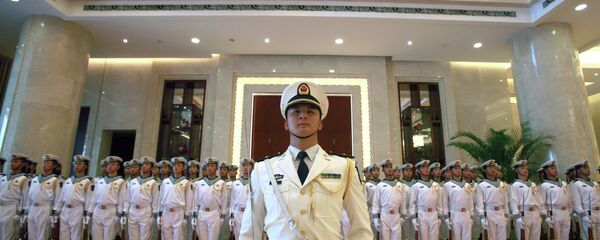Zhou Hongxu, who received a Masters in Business Administration at Taiwan's National Chengchi University in 2016, was found guilty of violating the National Security Act. Prosecutors sought to give him five years in prison, but the court gave him a lighter sentence because he was not a member of the military, he had not been found to have successfully created any spies, and he had previously confessed to the charges.
According to the Taipei court, a Chinese official instructed the 29-year old Zhou in 2014 to recruit "Taiwanese government personnel and other people of influence" while he lived on the island. In 2016, Zhou allegedly attempted to recruit a Taiwanese foreign ministry official by offering him a $40,000 bribe.
After his arrest, Zhou confessed to Taiwanese authorities. He later withdrew his confession, claiming that he had been framed.
"Zhou Hongxu knew that the cross-strait relationship is an unusual one and the two are considered rivals on the international stage," the court said. His actions caused "not insignificant harm to our national security",
On Monday, Taiwanese human rights activist Li Ming-che pled guilty to subverting the Chinese government, a crime that can be punished with life in prison. Li was arrested in March. After the trial, he read a statement where he apologized for the "subversive act" of penning and circulating articles that "attacked and wickedly smeared the Chinese government" and "promoted Western-style multi-party democracy."
Li's wife Chingyu called her husband's words a "forced confession." She denied any truth to the severe allegations. She says that Li's only crime was being a convenient target during a period of tensions, and thus he found himself as the center of a "political show."
Taipei said that Li was "committed to sharing universal values of democracy, freedom and human rights with the people of China. [He] should not face unreasonable treatment by Chinese authorities in the name of national security,"
Taiwanese media reports that as many as 5,000 Chinese spies have infiltrated Taiwan as relations between the island and the mainland continue to decline.
In May 2016, Tsai Ing-wen took office as president of Taiwan. Tsai, a member of the liberal Democratic Progressive Party (DPP), has refused to publicly acknowledge that China and Taiwan are one nation, as her predecessors have.
Taiwan is formally known as the Republic of China, the name of the government of all of China between 1912 and 1949, when the Communist Party won the civil war and established the People's Republic of China on the mainland, claiming that Taiwan represents a rebellious territory of China and not a legitimate government.
Since 1992, the Taiwanese position had been the inverse: that the communist government in Beijing was illegitimate and the Taiwanese government represented the only rightful government of all of China. However, the consensus that there was only one China was the basis for the shaky diplomatic relationship between the two Chinas.
Tsai rejects this stance and claims that Taiwan is its own independent state that is unlikely to ever rejoin the mainland. Beijing vehemently disagrees with this stance, as they consider Taiwan to be little more than a wayward province, and has taken a more hostile posture toward Taipei as a result.





